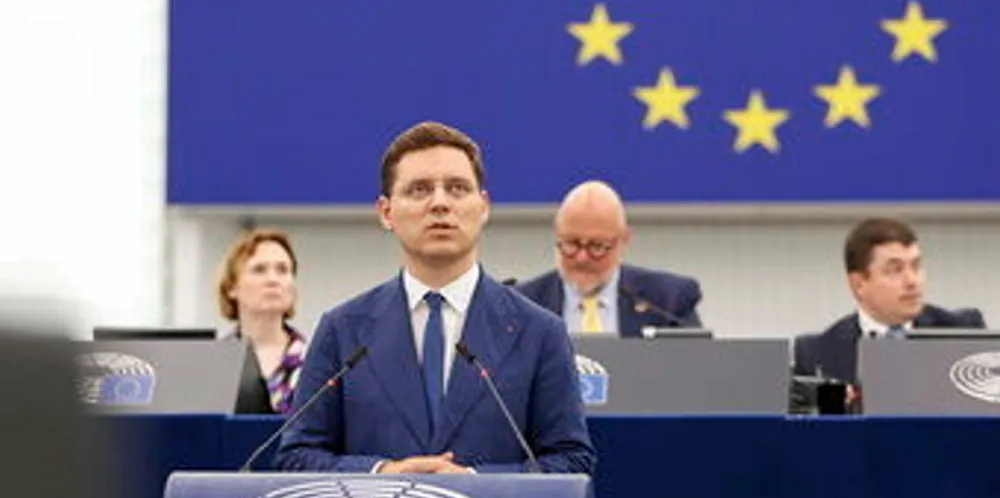Can Europe rise to the challenge as lawmakers wave through Critical Raw Materials Act?
EU seeks to diversify sources of critical minerals while improving ESG standards

A draft European Union law aimed at diversifying sources of minerals listed as critical for the energy transition is set to enter into force next year after its adoption by the European Parliament, throwing down a challenge to the bloc's domestic producers to meet 10% quotas included in the legislation.
The draft Critical Raw Materials Act (CRMA) that was agreed with the European Council and Commission won overwhelming support following a plenary debate in the European Parliament late last week.
It aims to secure a diverse, reliable and sustainable supply of minerals deemed critical for the energy and digital transitions now taking place, with an emphasis on ending dependence on Chinese supply of both raw and refined products.
The Act lists 34 minerals as critical to the EU economy and posing a risk of supply constraints, with 16 of these designated "strategic" because of their importance and the higher risk of demand and supply imbalance.
The list of both critical and strategic minerals includes base metals such as copper, nickel and cobalt along with battery grade lithium, graphite and manganese and a number of rare earth elements used in permanent magnets for wind turbines and in electric vehicles.
China concern
The EU has ambitious net zero targets across its economy but the Ukraine war and decisions by China to restrict exports of several critical minerals, including graphite, have spurred EU policymakers to address this.
China currently supplies 90% of rare earths globally, and 60% of all refined lithium. The EU currently imports 98% of its rare earth needs from China. according to the European Council on Foreign Relations, a think-tank.
China has used this control over raw materials to exert geopolitical pressure before, as in 2010 when it curt off all exports of rare metals to China over territorial disputes involving the Senkaku-Diaoyu islands.
The CRMA sets a 10% domestic production target for the minerals listed as strategic, aiming to develop EU mining capacity for all 16 by 2030.
The legislation states that no more than 65% of the EU's demand for any critical mineral should come from a single third country and also that the bloc should be processing 40% and recycling 25% of its its own critical mineral needs by 2030.
The legislation attempts to streamline permitting processes for strategic projects, but this excludes environmental impact assessments from its time frame of 15 months for processing and recycling projects and 27 months for mining.
The CRMA provides for the researching and developing alternative critical materials and making mining and production more sustainable. It also underlines the importance of new partnerships and cooperation agreements, although talks on this front with the USA and with South American Mercosur bloc members have yet to bear fruit.
Approval of the CRMA has followed closely behind the bloc's Net Zero Industry Act (NZIA) which aims to provide support to clean technology industries and is touted as a European response to the US Inflation Reduction Act, with its $369bn of subsidies for green industries.
The NZIA provides a benchmark for EU manufacturers to supply at least 40% of the bloc's annual needs for clean tech, including battery storage and flagship renewables products such as wind turbines and solar panels.
The CRMA will now go to the European Council for sanctioning before publication in the EU's official gazette.
The European Institute of Innovation and Technology-affiliated EIT RawMaterials group issued a statement welcoming the progress made by the CRMA,
"EIT RawMaterials wholeheartedly endorses this groundbreaking act, which marks a pivotal leap towards securing Europe's access to critical raw materials and a sustainable supply chain.
The Act also aims to fast-track strategic projects across the value chains while emphasising strong ESG standards and community engagement,"
EIT RawMaterials oversees a European Raw Materials Alliance (ERMA), engaged in identifying and discussing strategic across the value chain and promising "innovation, education, and circular economy strategies, supported by a diverse portfolio and collaborative investor relationships".
The EU-funded entity added: "Stimulating the highest levels of investment is still a fundamental need. To address this, we have successfully identified €20bn of qualified investment cases and are intensively collaborating with the investor community to step up investments urgently."
Bernd Schafer, CEO & managing director of EIT RawMaterials, remarked: 'The Critical Raw Materials Act is a leap towards European self-reliance and sustainability. It not only strives to safeguard our supply chains but also reaffirms our commitment to the environment and future generations.”
(Copyright)